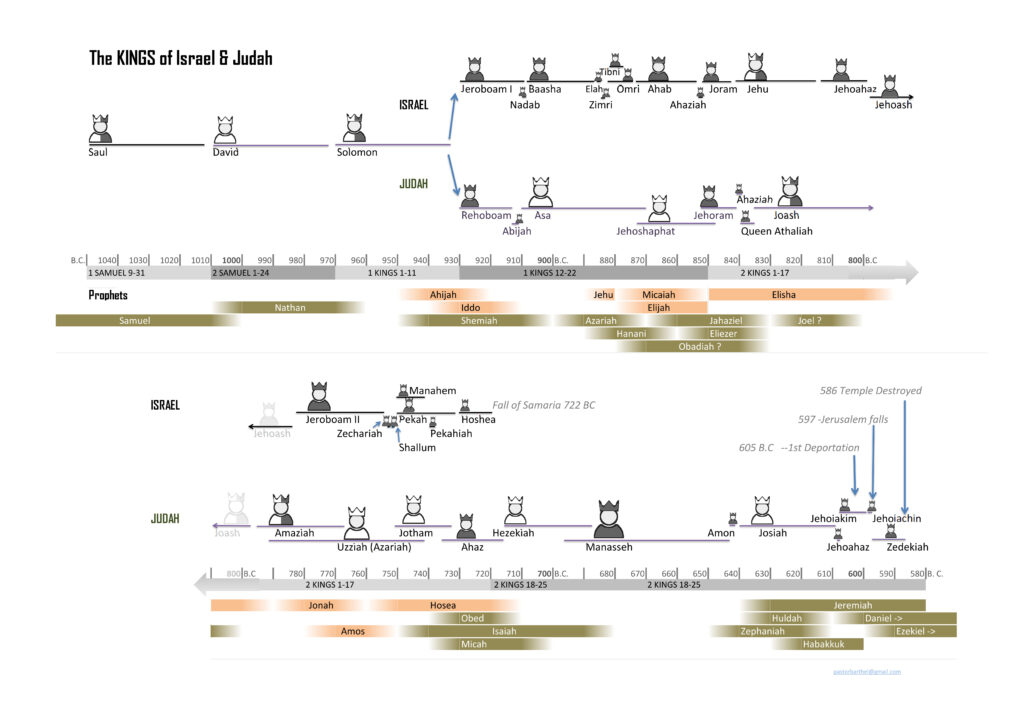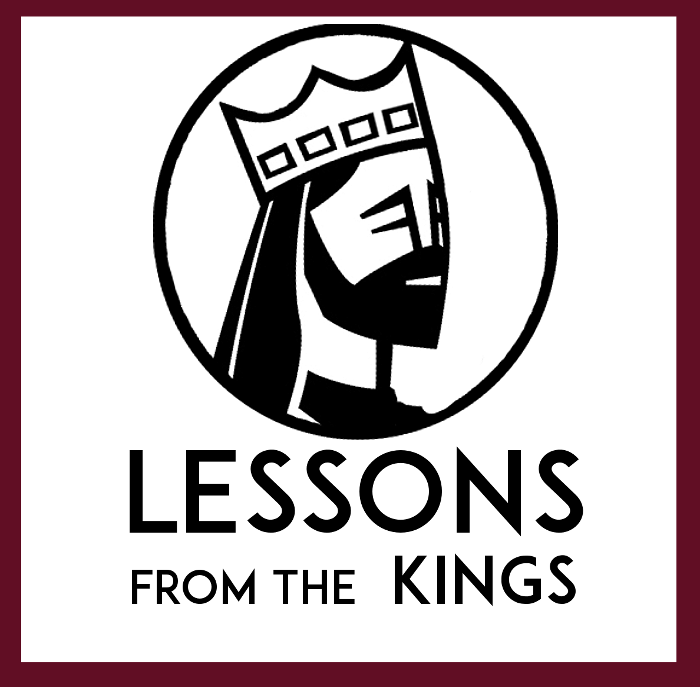Our Adult Discipleship group (a midweek Bible class) is going through the Kings of Israel and Judah. You are welcome to join us for any session in person or online. See the calendar for dates. [View Series]
This chart is a map of our course of study. We will go chronologically king by king.
King Uzziah
More commonly known as Uzziah(“My strength is the Lord”), he is also called Azariah (“The Lord has helped”) in the book of 2 Kings. Taking the throne at the young age of sixteen he ruled for a total of fifty-two years (790 BC-740 BC). Recall that the foolish military pride of his father Amaziah left Jerusalem with damaged walls and very humbled under Israel’s crushing strike. The once well-off people of Judah were in a low point with damaged fields, damaged cities, and weak defenses. Uzziah turns all that around. He waged successful campaigns against Judah’s enemies. He had a large and very well equipped army. He built defenses with inventive war machines such as mounted crossbows and catapults. He increased the water sources and agricultural achievements. But when he placed his inventive techniques into the sphere of worship, his pride went to his head. He lived out the later part of his reign in seclusion while his son was the acting head of state.
Isaiah, Hosea, and Amos all began their prophetic work in the time of Uzziah (Is 1:1; Hos 1:1; Am 1:1)
Read about King Uzziah: 2 Kings 15:1-7; 2 Chronicles 26
Some Boundaries Should Not Be Broken
Off the top of your head give the typical correct or incorrect answers you’d expect to hear when someone is asked “why do we have/call pastors?”
Read 2 Chronicles 26. Uzziah actually built fortified cities for Judah in enemy territory across the usual boundary. Uzziah recaptured Elath, an Edomite city that went back and forth as a boundary city on an important trade route toward Egypt. He also secured dominance over the Amonites so that they had to pay him tribute. List a few other areas in which he excelled. In what way did he break a boundary that was not his to cross?
Explain the added significance of God using leprosy here. (Compare with Numbers 12)
Who does the Lord use to position and call people into service in the public(representative) ministry today? (Acts 13:2-3; Acts 20:28, Eph 4:11-13.)
In what ways might church leaders, volunteers, or even non-active lay people be tempted through pride to wrongly take over a task which they were not called by God to carry out?
Contrast Uzziah’s attitude toward the public office of the ministry with Isaiah’s (Isaiah 6:1-5). How can a congregation keep a healthy balance of humble pastors and humble church members as they serve one another?
Evaluate this part of our Lutheran Confessions: “Of Ecclesiastical Order they (our churches) teach that no one should publicly teach in the Church or administer the Sacraments unless he be regularly called.” (Augsburg Confession: Article XIV: Of Ecclesiastical Order)


